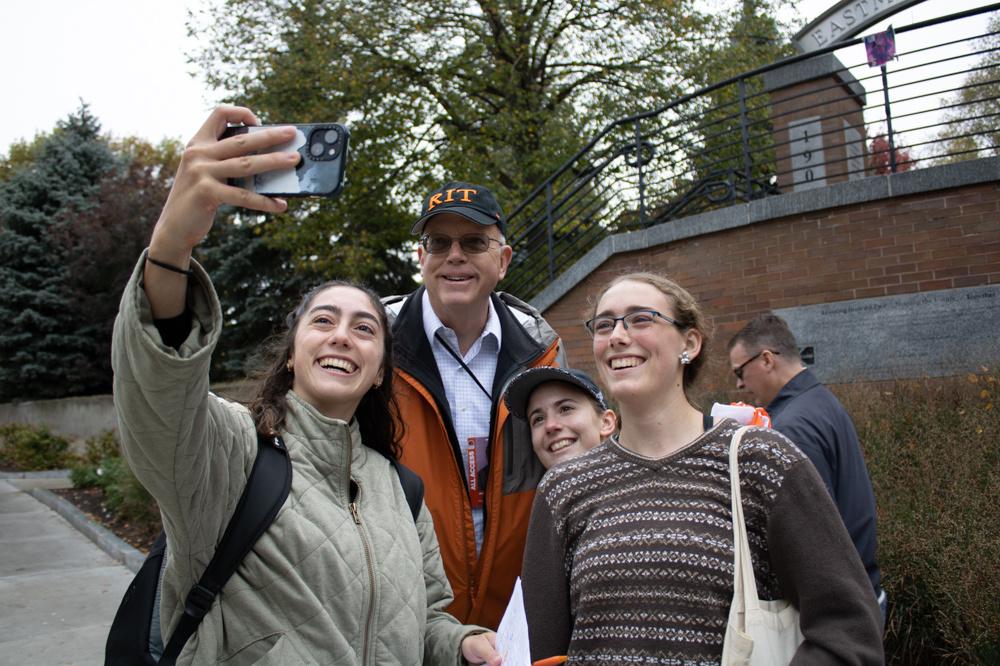The Nobel Prize in considered one of the most prestigious awards it is possible to receive. It is awarded to people who spur significant change in the world, either by inspiring progress in the spread of peace or by advancing a scientific field. However, the Nobel Prize does not recognize one of the most elementary fields when it comes to progressing the world as a whole – education.
Without educators, we would not have nearly as many scientists or brilliant world leaders. It’s hard to make scientific breakthroughs if you no one ever taught you high school chemistry, after all. Yet this field, which is so pivotal to the advancement of society, receives very little recognition, especially in the United States.
In the United States, around 50 percent of teachers quit their jobs by their fifth year of teaching. On the surface, teaching seems fairly easy, even glamorous. Summers and holidays off, days that end in the early afternoon and the opportunity to work with kids can make the position seem very appealing. However, many people don’t take other factors into account. Creating and grading homework and tests, writing lesson plans, after-school tutoring and dealing with parents are all done outside of classroom time and frequently on days “off.”
Worse yet, teachers don’t garner the respect that they deserve. Rebellious students will always be present, but many parents are very quick to blame teachers for their children’s failings. If their child receives a failing grade, they rarely look at their child or themselves as the root cause, no matter the circumstances. Teachers are an easy scapegoat and, worse yet, some parents will blame teachers for their child’s lack of respect or attitude, despite that being their job as parents to foster.
This creates something of a paradox, as most teachers are left woefully powerless to discipline their students. Aside from assigning detention, there isn’t much a teacher can do. Punishments like swatting a student’s wrist with a ruler or making them stand in the corner are deemed harmful to students. Despite this, teachers used to use these punishments regularly on students without causing any lasting damage to them, other than perhaps wounding their egos. Now we’re left with children that don’t want to learn and know that they won’t get in trouble for blowing off their schoolwork.
This idea that teachers are always at fault may stem from the fact that many people, who have completed high school, think that they’re smarter than the average grade-school teacher, Many people think they know what teaching is like just by having been in school at some point. However, ask a teacher, and they can tell you some harrowing stories about how taxing the profession is. There needs to be a massive shift in how we view teachers, because we’re approaching a point where both students and teachers will be utterly apathetic, and in that situation, society as a whole loses.
A good starting point would be more ways for teachers to garner recognition. More awards for good teachers, more ways to let them know that their efforts are being seen and rewarded. Additionally, people need to be made aware of how difficult being a teacher really is. They need to learn that teachers work harder than a lot of other professions, and that all of their “extra” days off when school is closed are usually spent working at home. With a better understanding of the hell some teachers go through, we might be able to lessen the disrespect so many people show towards them.
While the educational system may not be able to do much about it, parents need to learn that a teacher’s job is not to raise their child for them. Failing grades are not always the fault of a lousy teacher, but rather those of an unconcerned student. Teachers can try as hard as they want to reach out to them, but some students don’t even want to try to raise their grades. At that point, it becomes the parents’ job to make their child care.
More motivated teachers could do wonders for this country. Better teachers can make students feel more engaged and more excited to learn, which means more intelligent adults at the end of their 12 years of schooling. This could lead to more scientific breakthroughs and a lot more Nobel Prizes. Ultimately, those achievements can be traced back to the recipient’s teachers — the ones who gave them the knowledge they needed to make a monumental change in the world.







